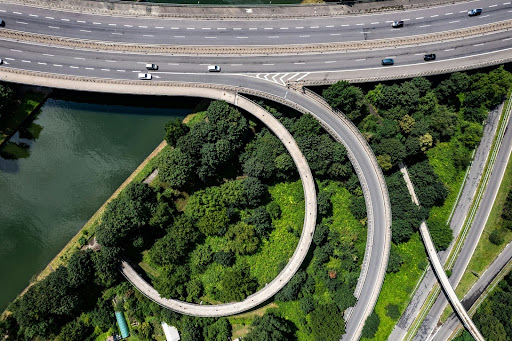Artificial Intelligence
How AI is driving a new era of sustainability and environmental stewardship

Photo by Bernd Dittrich
Climate change and sustainability have become central topics in global discussions, dominating headlines and influencing policy decisions. It’s no surprise that maintaining a healthy environment is a priority for many. Recent research indicates that 78% of consumers believe practicing sustainability is important. But amidst these conversations, a pivotal question emerges: What is the ultimate goal of these sustainability efforts, and how can we achieve it?
“To ensure a happy planet and a healthy future, it is crucial that businesses start implementing new technologies that improve sustainability,” says JD Ambati, Founder & CEO of EverestLabs. “We help increase sustainability and efficiency in the recycling industry by using AI and robotics to automate the sorting of recyclables, ensuring more materials are recycled than ever before.”
Artificial Intelligence (AI) and robotics are unlocking unprecedented levels of efficiency in recycling processes, marking a significant stride toward a more sustainable future. These technologies are not just incremental improvements; they represent a transformative approach to how we manage waste and resource recovery.
The Power of AI in Recycling
Traditional recycling methods have long struggled with inefficiencies and limitations. Manual sorting is labor-intensive, costly, and prone to errors, leading to recyclable materials ending up in landfills. AI-powered robots, however, can operate tirelessly with remarkable precision, identifying and sorting materials at a speed and accuracy unattainable by human workers.
“Recycling has a huge impact on our environment, so it’s important to make sure that everything that can be recycled is not going to waste, literally,” Ambati emphasizes. “Our goal is to strengthen the circular economy for packaging by leaving no recyclable behind.”
By integrating AI into Material Recovery Facilities (MRFs), companies like EverestLabs are enhancing the capabilities of recycling systems. These smart robots use computer vision and machine learning algorithms to recognize different types of waste materials—plastics, metals, paper, and more—and sort them accordingly. This not only increases the volume of materials that can be recycled but also improves the purity of recycled outputs, making them more valuable and easier to repurpose.
Creating a Circular Economy
The concept of a circular economy revolves around minimizing waste and making the most of resources. AI and robotics are critical enablers of this model. By ensuring that recyclable materials are efficiently recovered and reintroduced into the production cycle, we reduce the need for virgin resources and decrease environmental degradation.
Moreover, AI systems can collect and analyze vast amounts of data during the sorting process. This data provides insights into waste streams, helping businesses and governments make informed decisions about product design, waste management policies, and sustainability initiatives. It enables a proactive approach to environmental stewardship, moving beyond reactive measures to strategic planning and optimization.
Empowering Individual Action
While technological advancements in industry are essential, individual actions also play a significant role in driving sustainability. Consumers have the power to influence the market through their choices and habits.
Here are some ways you can practice sustainability at home:
- Reduce, Reuse, Recycle: Follow the three R’s to minimize waste. Reduce your consumption of single-use items, reuse products whenever possible, and recycle materials according to local guidelines.
- Educate Yourself: Stay informed about what materials are recyclable in your area. Contamination can hinder recycling efforts, so knowing how to sort your waste correctly is crucial.
- Support Sustainable Brands: Choose products from companies that prioritize environmental responsibility. Your purchasing decisions can encourage businesses to adopt more sustainable practices.
- Conserve Energy: Simple actions like turning off lights when not in use, using energy-efficient appliances, and insulating your home can reduce your carbon footprint.
- Advocate for Change: Engage with community initiatives, support environmental policies, and encourage others to take sustainable actions.
The Road Ahead
The integration of AI in recycling is a testament to how technology can be harnessed to address some of the most pressing environmental challenges. By automating and optimizing recycling processes, we move closer to a sustainable future where resources are efficiently managed, and waste is significantly reduced.
Businesses have a pivotal role to play in this transformation. Implementing new technologies is not just about staying ahead in a competitive market; it’s about being stewards of the planet. As JD Ambati notes, the goal is clear: “To ensure a happy planet and a healthy future.”
The collective efforts of industries, governments, and individuals are essential in this journey. By embracing innovative solutions and fostering a culture of sustainability, we can make significant strides in combating climate change and preserving the environment for future generations.
Conclusion
AI is more than a technological advancement; it’s a catalyst for environmental change. As we continue to explore and invest in these technologies, we unlock new possibilities for sustainability. The earth is getting greener, thanks in part to AI, but the journey is ongoing.
Each of us has a role to play. By making conscious choices and supporting sustainable initiatives, we contribute to a larger movement toward environmental preservation. The power to make a difference lies not just in the hands of corporations and governments but within our own homes and communities.
The question isn’t just how we can get there, but when. With AI leading the charge in recycling and sustainability, the answer could be sooner than we think.























